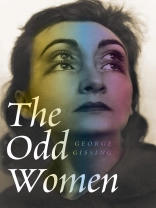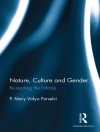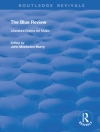’One of the great feminist novels of the 19th century’ – Vivian Gornick
George Gissing’s intensely modern The Odd Women is one of the truly great novels of nineteenth-century fiction. The impoverished Madden sisters are ill-equiped to support themselves when their father dies, and Monica sees her only chance of escape from a life of grinding misery in marriage. When she is befriended by two independent women, who strive to educate single women to take control of their destinies, the choices that lie ahead of them are starkly defined.
The Odd Women is a dramatic exploration of the dilemmas facing the single woman at the turn of the century. Set in grimy, fog-ridden London, the novel paints a vivid portrait of the hardships and inequalities in and outside of marriage, and of a society whose values are in flux.
A novel of social realism, The Odd Women reflects the major sexual and cultural issues of the late nineteenth century. Gissing portrays contemporary society’s blatant ambivalence towards its own period of transition. Judged by contemporary critics to be as provocative as Zola and Ibsen, Gissing produced an intensely modern work, and the issues it raises remain the subject of contemporary debate.
Praise for The Odd Women
’In The Odd Women there is not a single major character whose life is not ruined either by having too little money, or by getting it too late in life, or by the pressure of social conventions which are obviously absurd but which cannot be questioned … the disaster lies in obeying the accepted social code, or in not having enough money to circumvent it … I am ready to maintain that England has produced very few better novelists … Gissing was not a writer of picaresque tales, or burlesques, or comedies, or political tracts: he was interested in individual human beings, and the fact that he can deal sympathetically with several different sets of motives, and makes a credible story out of the collision between them, makes him exceptional among English writers.’ – George Orwell
’The Odd Women has gained considerable circulation as an early treatment of feminism …’ - The New York Times
’[The Odd Women] is an 1893 novel by George Gissing that deals with the first breaths of the modern feminist movement in England.’ - The New Yorker
’One of the great feminist novels of the 19th century … In this novel – published in 1893 – I could see and hear the characters as if they were women and men of my own acquaintance. I knew intimately what was tearing these people apart. What’s more, I recognized myself as one of the ’odd’ women. Every fifty years from the time of the French Revolution, feminists had been described as ’new’ women, ’free’ women, ’liberated’ women – but Gissing had gotten it just right. We were the ’odd’ women.’ – Vivian Gornick
’No one who has read this book will ever forget it – no woman at least’ – Pierre Coustillas, Gissing: The Cultural Heritage
Astonishingly ahead of its time, The Odd Women is a pioneering work of early feminism, as provocative as Zola and Ibsen.
Om författaren
George Gissing (1857-1903) was an English novelist, noted for the unflinching realism of his novels about the lower middle class. Gissing was educated at Owens College, Manchester, where his academic career was brilliant until he was expelled (and briefly imprisoned) for theft. The life of near poverty and constant drudgery-writing and teaching-that he led until the mid-1880s is described in the novels New Grub Street (1891) and The Private Papers of Henry Ryecroft (1903). Before he was 21 he conceived the ambition of writing a long series of novels, somewhat in the manner of Balzac, whom he admired. The first of these, Workers in the Dawn, appeared in 1880, to be followed by 21 others. Between 1886 and 1895 he published one or more novels every year. He also wrote Charles Dickens: A Critical Study (1898), a perceptive piece of literary criticism. His work is serious-though not without a good deal of comic observation-and scrupulously honest. On the social position and psychology of women he is particularly acute: The Odd Women (1893) is a powerful study of female frustration. Gissing was deeply critical, in an almost wholly negative way, of contemporary society.












